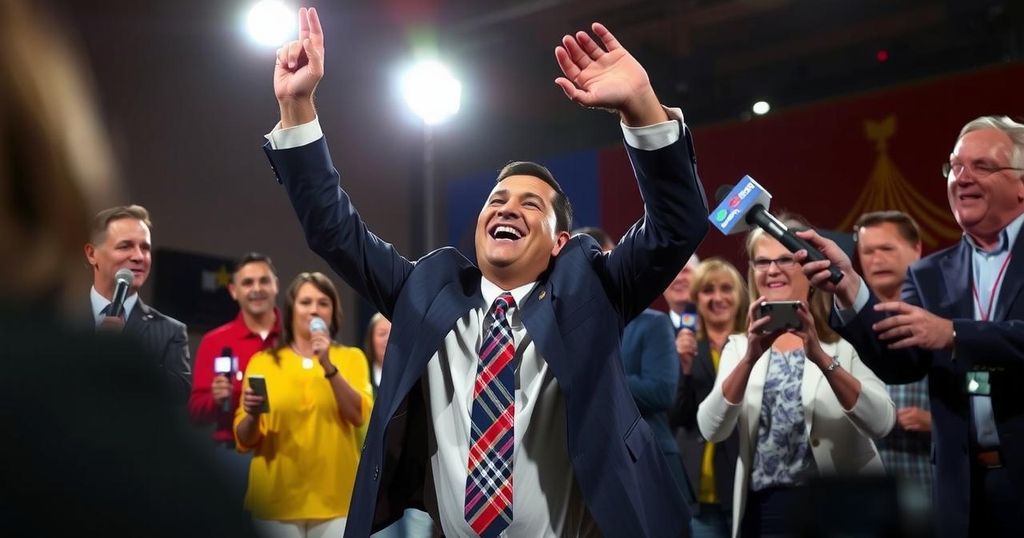David Valadao has won re-election to the U.S. House in California’s 22nd District. This election served as a rematch against Rudy Salas, who narrowly lost to Valadao in 2022. Valadao’s success highlights the district’s complex political landscape, where he has maintained a foothold as a moderate Republican in a majority Democratic area. The Republican Party is now just two seats away from a House majority, with 13 races still undecided.
In a closely watched race, incumbent Republican Representative David Valadao has successfully secured re-election to the U.S. House of Representatives for California’s 22nd Congressional District, located in the San Joaquin Valley. The contest was marked by its competitiveness and was deemed a potential toss-up, reflecting the changing dynamics of political affiliations within the district. Valadao’s victory arrives alongside a notable win for fellow Republican Gabe Evans in Colorado’s 8th Congressional District, positioning the GOP two seats shy of regaining a majority in the House of Representatives. Currently, the composition of the House stands at 216 Republicans against 206 Democrats, with 13 races yet to be decided as of Tuesday evening. Valadao’s re-election signifies a rematch against Democratic challenger Rudy Salas, who previously contended for the seat in a narrowly decided election in 2022. Holding office since 2013—despite one term from 2019 to 2021—Valadao is one of the few Republicans to maintain a foothold within a district that leans Democratic and features a larger number of registered Democrats than Republicans. Valadao’s political stance is characterized by moderate views that sometimes diverge from the prevailing conservative ideologies within his party, evident in his vote to impeach former President Donald Trump. This stance has made him a target for Trump supporters while also positioning him as a significant figure for Democrats who aimed to overturn his seat. Salas, with a background as a former state assemblyman and connections to labor unions and agricultural workers, sought to rally voters within the majority-Latino district of CA-22, which comprises parts of California’s Central Valley. As the 22nd District grapples with critical issues such as water shortages, illegal immigration, and economic challenges, both candidates boast strong local connections. In the previous election cycle, Valadao managed to secure victory over Salas by a narrow margin of fewer than 4,000 votes.
The California’s 22nd Congressional District, which encompasses a significant portion of the San Joaquin Valley, has witnessed a competitive political landscape over recent election cycles. Historically represented by Republican David Valadao since 2013—with a brief hiatus—this district has shifted towards a more Democratic inclination, leading to intense electoral battles. Valadao’s moderate platform sets him apart in a party that has leaned increasingly conservative, allowing him to appeal to a diverse electorate in a district marked by a majority of registered Democrats and significant demographic diversity, including a large Latino population. His previous vote for the impeachment of former President Trump notably positions him within a complex political narrative, fueling both support and opposition.
In conclusion, Representative David Valadao’s re-election in California’s 22nd District underscores the complex interplay of local voter dynamics in a predominantly Democratic region. His ability to maintain a Republican presence amidst shifting political currents speaks to his moderate approach and local ties. With the GOP striving for a House majority, Valadao’s victory alongside other Republican wins exemplifies the ongoing electoral challenges faced by both parties in the current political landscape.
Original Source: www.foxnews.com






